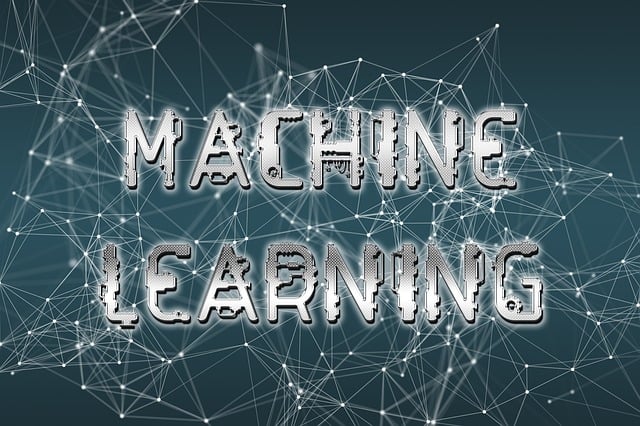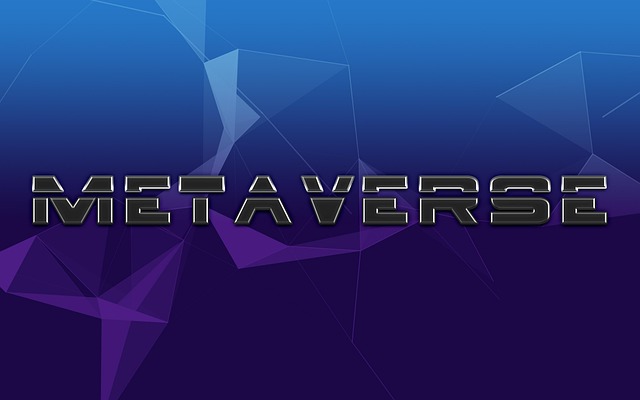
Category: AI Sales Assistant for Lead Generation and Follow Up
AI Sales Assistant for Lead Generation and Follow-Up: Revolutionizing Business Development
Introduction
In today’s fast-paced business environment, lead generation and follow-up are critical components of sales success. Traditional methods have long relied on manual processes, often involving vast amounts of time and resources. However, the advent of Artificial Intelligence (AI) has brought about a paradigm shift in sales assistance, offering innovative solutions for generating and nurturing leads. This article delves into the world of AI Sales Assistants tailored for lead generation and follow-up, exploring their capabilities, impact, and potential to transform sales strategies worldwide. We will navigate through various aspects, from understanding the technology to its global reach, economic implications, and the challenges it aims to address.
Understanding AI Sales Assistant for Lead Generation and Follow-Up
Definition and Core Components
An AI Sales Assistant for lead generation and follow-up is an advanced software system designed to automate and optimize sales processes. It leverages machine learning algorithms, natural language processing (NLP), and other AI techniques to interact with potential customers, gather leads, and nurture them through the sales funnel. Key components include:
- Lead Generation: Utilizing data analytics, customer relationship management (CRM) systems, and predictive modeling to identify and qualify prospective clients.
- Personalized Communication: AI assistants can tailor messages, emails, and calls to individual prospects, increasing engagement and conversion rates.
- Automated Follow-Up: Setting reminders and scheduling tasks to ensure consistent communication with leads without manual intervention.
- Sales Pipeline Management: Providing insights into lead behavior, helping sales teams prioritize and optimize their efforts.
Historical Context and Evolution
The concept of AI in sales assistance has been evolving for decades, but recent advancements in machine learning and NLP have brought it to the forefront. Early systems focused on rule-based automation, while modern solutions employ deep learning models capable of complex decision-making. The shift towards more sophisticated AI is driven by the availability of vast data and improved computational power.
Significance and Broader Impact
AI Sales Assistants offer numerous benefits, including increased efficiency, enhanced lead quality, and improved customer interactions. They can handle repetitive tasks, allowing sales teams to focus on complex negotiations and building stronger client relationships. By automating initial customer engagement, these assistants can capture leads that might otherwise be missed due to human limitations.
Global Impact and Trends
International Adoption and Diversification
AI Sales Assistants have gained global acceptance, with businesses across industries adopting this technology to streamline their sales processes. North America and Europe have been early adopters, but Asia-Pacific is rapidly catching up, driven by the digital transformation initiatives of major economies like China and Japan.
Regional Variations in Implementation
The implementation of AI Sales Assistants varies across regions due to differences in technological infrastructure, data privacy regulations, and cultural attitudes towards automation. For instance:
| Region | Trends and Observations |
|---|---|
| North America | Leading in AI adoption, particularly in sectors like finance and healthcare. Focus on improving customer experience through personalized interactions. |
| Europe | Strict data privacy laws (e.g., GDPR) influence AI development, emphasizing security and ethical considerations. |
| Asia-Pacific | Rapidly growing market with a strong focus on innovation. China’s ‘New Generation Artificial Intelligence’ strategy drives advancements. |
| Middle East & Africa | Increasing adoption in enterprise sectors, driven by government initiatives promoting digital transformation. |
Global Market Dynamics
The global AI Sales Assistant market is experiencing significant growth, projected to reach USD 18.4 billion by 2025, growing at a CAGR of 26% (2020-2025). This expansion is fueled by the increasing demand for data-driven sales strategies and the need to improve operational efficiency.
Economic Considerations
Market Dynamics and Investment Patterns
The AI Sales Assistant market is characterized by intense competition, with various players offering specialized solutions. Key trends include:
- Vertical Integration: Major CRM software providers are integrating AI capabilities into their platforms, creating more comprehensive sales ecosystems.
- M&A Activity: Companies acquire AI startups to gain a competitive edge and access innovative technologies.
- Investment in R&D: Significant investments are made in research to enhance AI algorithms and improve overall system performance.
Economic Impact and Role in Systems
AI Sales Assistants contribute to economic growth by enabling businesses to:
- Increase sales productivity and revenue through efficient lead generation and conversion.
- Reduce operational costs by automating repetitive tasks, allowing human agents to focus on high-value activities.
- Gain a competitive advantage in the market by providing personalized customer experiences.
Technological Advancements
Breakthroughs Shaping Sales Assistance
Recent technological breakthroughs have significantly enhanced AI Sales Assistant capabilities:
- Advanced NLP: Improved language understanding enables more natural and contextually relevant conversations with customers.
- Machine Learning Enhancements: Deep learning models can now analyze complex data patterns, leading to better predictive analytics for lead scoring and customer behavior forecasting.
- Computer Vision: Integrating computer vision allows AI assistants to process visual data, enabling applications like analyzing customer interactions during video calls.
- Voice User Interfaces (VUI): The rise of voice assistants enhances customer engagement, particularly in the e-commerce sector.
Future Potential and Research Directions
The future holds immense potential for AI Sales Assistants:
- Emotional Intelligence: Developing AI that can understand and respond to human emotions could revolutionize customer interactions.
- Hyper-Personalization: Utilizing advanced analytics to create ultra-personalized experiences, catering to individual preferences and behaviors.
- Cross-Channel Integration: Seamless integration across various communication channels (email, chat, voice, video) for a unified customer experience.
- Ethical AI Development: Focusing on transparent and explainable AI models to address privacy and bias concerns.
Policy and Regulation
Governing Frameworks and Their Impact
AI Sales Assistants operate within the boundaries set by various policies and regulations:
- Data Privacy Laws: Regulations like GDPR in Europe, CCPA in California, and China’s Data Security Law govern data collection and usage, influencing how AI systems process customer information.
- Industry-Specific Guidelines: Sectors such as healthcare (HIPAA) and finance (PCI DSS) have industry-specific rules that AI assistants must adhere to.
- AI Ethics Guidelines: Many countries are developing ethical frameworks for AI development and deployment, ensuring responsible practices.
Challenges and Harmonization Efforts
The diverse regulatory landscape presents challenges, particularly with global operations:
- Data Sovereignty: Determining where data should be stored and processed to comply with regional laws is a complex issue.
- Privacy and Security: Balancing the benefits of AI with robust security measures to protect customer data.
- Standardization: Efforts are underway to harmonize regulations, such as the EU’s proposed Artificial Intelligence Act, to create a more consistent global framework.
Challenges and Criticisms
Overcoming Common Obstacles
AI Sales Assistants face several challenges that can hinder their effectiveness:
- Data Quality: Inaccurate or incomplete data feeds into the AI system, leading to poor results. Ensuring high-quality, diverse datasets is essential.
- Bias and Fairness: AI models may inherit biases from training data, impacting decision-making and customer interactions. Mitigating bias through diverse teams and careful algorithm design is crucial.
- Human Adaptation: Sales teams may resist change or struggle to adapt to new technologies. Training and support are necessary to ensure smooth adoption.
- Technical Limitations: Current AI still lacks common sense and contextual understanding, leading to occasional errors. Continuous improvement through research is required.
Strategies for Improvement
Proposed solutions include:
- Collaborative Development: Involving sales teams in the development process ensures that AI assistants align with real-world sales challenges and opportunities.
- Continuous Training: Regularly updating models with new data to adapt to changing market dynamics and customer behaviors.
- Human-AI Collaboration: Designing systems that augment human capabilities rather than replace them, leveraging the strengths of both.
- Ethical Guidelines: Establishing industry-wide ethical standards to ensure responsible AI development and usage.
Case Studies: Successful Implementations
Real-World Applications and Lessons Learned
1. Retail Giant’s Personalized Experience
A leading global retailer implemented an AI Sales Assistant for its online platform, focusing on personalized product recommendations. The system analyzed customer browsing behavior, purchase history, and preferences to offer tailored suggestions. This approach led to:
- Increased Conversion Rates: 25% rise in conversions due to more relevant product recommendations.
- Improved Customer Satisfaction: Higher customer satisfaction scores attributed to a more customized shopping experience.
- Data-Driven Decisions: AI insights enabled the retailer to optimize its inventory and marketing strategies, reducing stockouts.
2. FinTech Startup’s Lead Generation
A FinTech startup utilized AI for lead generation in the insurance sector. By analyzing public data, social media trends, and customer behavior patterns, the AI assistant identified potential policyholders. This strategy resulted in:
- High-Quality Leads: A 30% lower churn rate among acquired leads compared to traditional methods.
- Cost Savings: 15% reduction in marketing spend due to more targeted campaigns.
- Regulatory Compliance: The AI system was designed to adhere to industry regulations, ensuring data privacy and security.
3. Healthcare Provider’s Patient Engagement
A hospital system deployed an AI assistant to engage patients post-discharge, providing follow-up care instructions and monitoring patient recovery. Key achievements included:
- Improved Patient Outcomes: Reduced readmission rates by 18% through proactive follow-up and early identification of complications.
- Enhanced Patient Satisfaction: Higher satisfaction scores due to personalized communication and timely support.
- Efficiency Gains: AI assistants handled routine tasks, allowing medical staff to focus on complex patient cases.
Future Prospects: Trends and Growth Areas
Emerging Markets and Opportunities
The future holds immense potential for AI Sales Assistants:
- Emerging Markets Adoption: Rapidly growing economies in Asia and Africa are expected to witness significant AI adoption as businesses seek competitive edge.
- Omnichannel Integration: The trend towards seamless, integrated customer experiences across multiple channels will drive AI development.
- AI in B2B Sales: While B2C applications are more prominent, AI has immense potential to revolutionize Business-to-Business (B2B) sales processes.
Strategic Considerations for Businesses
To stay ahead in the market:
- Invest in Research and Partnerships: Collaborate with research institutions and AI startups to access cutting-edge technologies.
- Focus on Data Quality: Ensure high-quality data collection and management to train and improve AI models.
- Embrace a Hybrid Approach: Combine AI with human expertise for optimal results, particularly in complex sales scenarios.
- Anticipate Regulatory Changes: Stay informed about policy developments to ensure compliance and avoid legal pitfalls.
Conclusion: Shaping the Future of Sales
AI Sales Assistants for lead generation and follow-up represent a significant leap forward in sales technology, offering businesses unprecedented opportunities to optimize their operations and enhance customer interactions. The global impact is evident across industries, with successful implementations driving innovation and efficiency gains. As AI continues to evolve, its role in shaping the future of sales will become even more prominent.
By addressing challenges, embracing technological advancements, and navigating policy landscapes, businesses can harness the full potential of AI Sales Assistants. This technology is not just a game changer but a necessary step towards a more data-driven, efficient, and customer-centric sales environment. As we move forward, the ongoing dialogue between AI and human sales professionals will define the new era of business development.
FAQ Section:
Q: How does AI Sales Assistant differ from traditional CRM software?
A: While CRM systems manage customer data, AI Sales Assistants go beyond by automating lead generation, providing personalized communication, and offering advanced analytics for better decision-making.
Q: Can AI assistants handle complex sales cycles?
A: Absolutely! AI is well-suited to handle varied sales cycles. It can adapt its strategies based on customer behavior and provide tailored support throughout the sales process, from initial contact to finalization.
Q: What are some common challenges in implementing AI Sales Assistants?
A: Challenges include data quality issues, bias in algorithms, human resistance to change, and technical limitations. Overcoming these requires careful planning, diverse teams, continuous training, and ethical considerations.
Q: How does AI ensure data privacy during lead generation?
A: AI systems must comply with data privacy laws like GDPR or CCPA. This involves anonymizing data, obtaining user consent, securing storage, and providing transparent practices to protect customer information.
Q: What are the potential benefits for small businesses?
A: Small businesses can leverage AI to compete with larger competitors by optimizing sales processes, improving customer interactions, and reducing operational costs. AI assistants can handle tasks that would otherwise require significant human resources.









